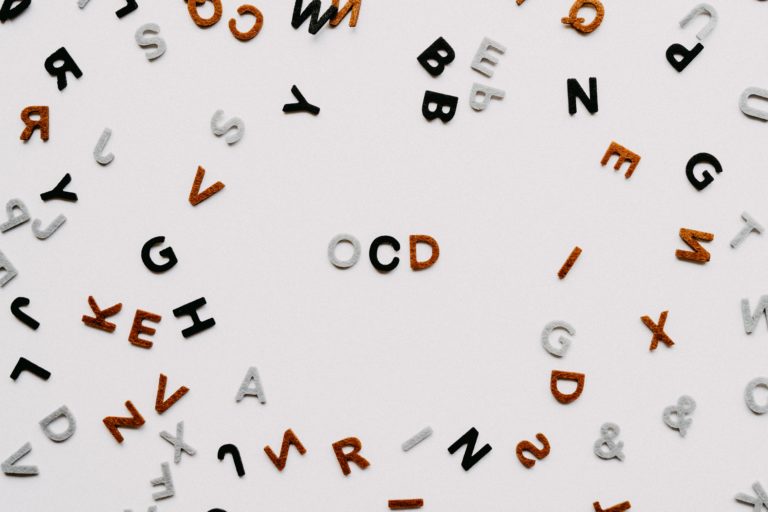Depression and chronic pain are two complex medical conditions that often go hand in hand. According to the World Health Organization (WHO), depression is a common mental health disorder that affects over 300 million people worldwide. Chronic pain, on the other hand, is a persistent pain that lasts for more than three months and affects millions of people globally. Studies have shown that individuals who suffer from chronic pain are more likely to experience depression, and vice versa. In fact, research suggests that up to 50% of people with a chronic medical illness also have depression, and up to 80% of people with depression experience some form of physical pain.
The Link Between Depression and Chronic Pain

Depression and pain have a complex and bidirectional relationship. The exact cause-and-effect relationship between the two conditions is not fully understood, but research suggests that they may influence each other in several ways.
Firstly, a chemical imbalance in the brain can play a pivotal role in both depression and chronic conditions. Low levels of serotonin, a neurotransmitter that regulates mood and pain perception, have been linked to both conditions. Serotonin helps to regulate pain signals in the brain, and low levels of serotonin can lead to an increased perception of pain. Additionally, low serotonin levels can affect mood, leading to symptoms of depression.
Secondly, pain can lead to changes in the brain that contribute to the development of depression. Chronic illnesses can cause alterations in the structure and function of the brain’s reward center, which can result in decreased feelings of pleasure and motivation. This can lead to a loss of interest in activities that were once enjoyable and a decreased quality of life, which can trigger symptoms of depression.
Thirdly, the stress and anxiety that come with having a chronic condition can also trigger depression. Having a chronic condition can be physically and emotionally draining, making it difficult for individuals to participate in activities they once enjoyed. The resulting social isolation and decreased quality of life can lead to feelings of hopelessness, helplessness, and despair, which are all symptoms of depression.
Depression and pain are interconnected, and the relationship between them is complex. The physical and emotional effects of chronic pain can contribute to the development of depression, and the symptoms of depression can exacerbate the experience of pain. It is important for individuals with a chronic illness to receive comprehensive treatment that addresses both their physical and emotional needs.
How Depression and Chronic Pain Affect Each Other

Depression and pain in general have a complex relationship, and the two conditions can have a significant impact on each other. Here are some ways in which depression and a chronic medical condition can affect each other:
Depression can worsen chronic pain
When individuals experience prolonged exposure to pain also experience depression, their pain can become more intense and difficult to manage. Depression can make pain feel more overwhelming, and it can also make individuals more sensitive to pain. Furthermore, depression can affect an individual’s ability to cope with pain, making it harder for them to engage in activities that might help alleviate their pain.
Chronic pain can trigger or worsen depression
Pain can take a toll on an individual’s mental health, and it can be a significant source of stress and anxiety. The constant discomfort and physical limitations caused by pain can make it difficult for individuals to engage in activities they once enjoyed, leading to feelings of social isolation and a decreased quality of life. These negative experiences can trigger or exacerbate symptoms of depression, such as feelings of hopelessness, helplessness, and worthlessness.
The relationship is cyclical
The relationship between depression and a chronic illness is not one-way. Chronic illnesses can cause depression, and depression can worsen the pain, leading to a cycle of negative experiences that can be difficult to break. For instance, having a chronic condition and/or autoimmune disorder can make it harder for individuals to get restful sleep, which can worsen their mood and make them more vulnerable to depression. Similarly, depression can lead to a decreased ability to cope with pain, making the pain more difficult to manage.
Depression and chronic pain can have a significant impact on each other. The relationship between the two conditions is cyclical, and they can exacerbate each other’s negative effects. It is essential for individuals experiencing both depression and chronic pain to receive comprehensive treatment that addresses both their physical and emotional needs.
Treatment Options

Living with depression and a chronic medical issue can be a challenging experience. However, managing both conditions at the same time can be even more challenging. Fortunately, there are treatment options available that can help individuals manage both conditions. Here are some of the common treatment options:
Medications
Antidepressants and other medications that target both depression and chronic pain can be prescribed by a healthcare professional. Antidepressants such as selective serotonin reuptake inhibitors (SSRIs) can be an option to be effective in treating both depression and chronic pain. Studies have shown that SSRIs can help improve mood and reduce pain in people with chronic illness and depression. Other medications such as tricyclic antidepressants (TCAs), serotonin-norepinephrine reuptake inhibitors (SNRIs), and anticonvulsants have also been shown to be effective in treating both depression and chronic pain.
Psychotherapy
Talk therapy can help individuals address the emotional and psychological aspects of both depression and chronic pain. Cognitive-behavioral therapy (CBT) is a type of talk therapy that has been shown to be effective in treating both conditions. CBT helps individuals change negative thought patterns and behaviors that contribute to both depression and chronic pain. A study found that CBT is effective in reducing pain severity and improving depression symptoms in patients with chronic illness and depression.
Lifestyle Changes
Simple lifestyle changes, such as regular exercise, a healthy diet, and stress reduction techniques, can help individuals manage both depression and chronic conditions. Exercise can be effective in reducing depression and pain symptoms in individuals with chronic pain. A healthy diet can also help reduce inflammation and improve overall health. Stress reduction techniques such as meditation, yoga, and deep breathing exercises can help reduce stress and anxiety, which can contribute to both depression and chronic conditions.
Alternative Therapies
Complementary therapies such as acupuncture, massage, and meditation have been shown to be effective in managing both depression and chronic pain. Acupuncture can be beneficial in reducing pain and improving depression symptoms in patients with chronic conditions and depression. Massage therapy can be effective in reducing pain and improving mood in individuals with chronic pain. Meditation is another option in reducing anxiety and depression symptoms in individuals with a chronic illness.
It is important to note that the treatment options listed above may not work for everyone. It is important to work closely with a healthcare professional to determine the best treatment plan for each individual.
Conclusion
Depression and chronic health issues are complex medical conditions that often co-occur. The link between the two conditions is still unclear, but researchers have proposed several theories. Studies show that up to 50% of people with a chronic medical condition also have depression, and up to 80% of people with depression experience some form of physical pain. The relationship between depression and chronic conditions are complex and bidirectional, with chemical imbalances in the brain, brain structure and function changes due to a chronic medical condition, and stress and anxiety contributing to the development of depression. The negative effects of depression and chronic illness can exacerbate each other, leading to a cycle of negative experiences. Treatment options for depression and pain include medications, psychotherapy, and lifestyle changes. It is essential for individuals experiencing both depression and prolonged pain to receive comprehensive treatment that addresses both their physical and emotional needs.




